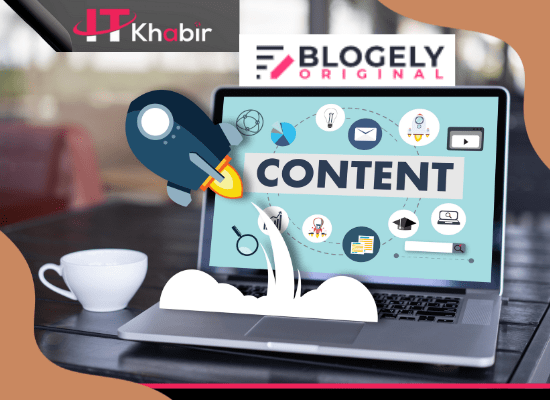Lead Generation Software is a powerful tool used to capture and manage leads in order to improve targeted marketing efforts and increase sales. By automating the process of lead capture, segmentation, and assignment, this software helps companies effectively generate and convert qualified leads.
With features such as web forms, landing pages, and chatbots, lead generation software utilizes clever methods to capture prospects’ attention and collect their contact information. It also provides lead scoring, data enrichment, messaging, and meeting scheduling capabilities to help salespeople reach out to potential customers.
With the right lead generation software, businesses can streamline their lead generation process, maximize their sales pipeline, and ultimately achieve higher conversion rates.

Essence Of Lead Generation Tools
In today’s digital era, lead generation has become a crucial aspect of any successful business. As competition intensifies, it is essential for companies to leverage the power of lead generation tools to stay ahead.
Lead generation software plays a vital role in capturing potential customers’ attention, collecting contact information, and nurturing them into qualified leads. Understanding the significance of these tools is crucial for businesses looking to maximize their sales pipeline and close more deals.
Understanding The Role Of Software In Lead Generation
Lead generation tools employ various clever methods, such as web forms, landing pages, and chatbots, to capture the attention of prospects. These tools act as gateways, allowing companies to interact with potential customers and collect their contact information. With the help of lead generation software, businesses can automate the process of capturing, segmenting, and assigning leads, which ultimately improves targeted marketing strategies.
Traditional Methods Versus Digital Tools
Traditionally, businesses relied on manual methods like cold calling, trade shows, and advertising campaigns to generate leads. However, these methods were time-consuming, inefficient, and often resulted in low conversion rates.
The advent of digital tools has revolutionized lead generation, providing businesses with a more streamlined and effective approach. Utilizing tools such as HubSpot, LinkedIn, Facebook, and Google, businesses can capture leads, drive traffic, and build landing pages, all with the click of a button.
With lead generation software, companies can easily identify new leads, keep accurate contact information, and improve conversion rates.
The software automatically records and stores lead data in the CRM database, making it easier for businesses to analyze and nurture these leads. Additionally, lead generation tools offer various features and techniques to engage the target audience and push them into the sales pipeline.
In conclusion, lead generation tools have become essential for businesses in today’s digital landscape. By utilizing software, companies can capture and nurture potential customers, improving their overall sales and revenue.
With the automation and efficiency that lead generation software provides, businesses can focus on developing their product or service while leaving the task of lead generation to the tools. In this competitive market, adopting lead generation software is not only advantageous but also crucial for long-term success.
Features Leading To Maximized Sales
Boost sales with the best lead generation software that captures qualified leads and drives more traffic. Discover top tools like HubSpot, LinkedIn, Facebook, and Google for lead capture, while Carrd helps build effective landing pages. Automate lead management and improve targeted marketing with this powerful software.
Automation and integration capabilities
Lead generation software is designed to streamline and automate the lead generation process, ultimately maximizing sales. One of the key features that sets this software apart is its automation and integration capabilities. By automating repetitive tasks and integrating with other software and platforms, lead generation software allows businesses to save time and resources while ensuring a consistent and efficient lead generation workflow.
With automation capabilities, lead generation software can automatically capture and store leads from various sources such as website forms, landing pages, social media platforms, and email campaigns. This eliminates the need for manual data entry and ensures that no potential leads slip through the cracks.
Integration capabilities, on the other hand, allow lead generation software to seamlessly connect and synchronize with other tools and systems such as customer relationship management (CRM) software, email marketing platforms, and sales automation tools. This integration enables businesses to streamline their lead management process, ensuring that all lead data is accurately recorded and easily accessible to the sales and marketing teams.
By harnessing the power of automation and integration, lead generation software empowers businesses to operate more efficiently, nurture leads effectively, and ultimately close more sales.
Analytics and tracking functions
In addition to automation and integration capabilities, lead generation software also offers robust analytics and tracking functions. These features enable businesses to gain valuable insights into their lead generation efforts, allowing them to optimize their strategies for maximum sales conversion.
With analytics functions, businesses can track key metrics such as the number of leads generated, conversion rates, and the effectiveness of different lead generation channels. This data-driven approach allows them to identify what is working and what can be improved, enabling them to make data-backed decisions to boost their sales performance.
Tracking functions within lead generation software provide real-time visibility into the lead lifecycle. Businesses can monitor the progress of individual leads, from the moment they enter the system to the point of conversion or closure.
This tracking capability enables businesses to identify bottlenecks, prioritize leads, and proactively engage with potential customers at the right time.
Furthermore, lead generation software often provides detailed reporting functionalities, presenting data in visually appealing and easy-to-understand formats such as charts and graphs. These reports offer comprehensive insights into lead generation campaigns, enabling businesses to measure their return on investment (ROI) and make informed decisions to maximize their sales potential.
Customization and flexibility for various businesses
Not Every Business Operates The Same Way, And Lead Generation Software Recognizes This By Offering Customization And Flexibility. This Feature Ensures That The Software Can Adapt To The Unique Needs And Workflows Of Different Businesses, Catering To Their Specific Requirements For Successful Lead Generation.
lead Generation Software Offers Customization Options That Allow Businesses To Tailor Their Lead Capture Forms, Landing Pages, And Lead Nurturing Workflows To Align With Their Branding And Messaging. This Level Of Customization Ensures A Consistent And Personalized Experience For Leads, Increasing Their Likelihood Of Converting Into Customers.
flexibility Is Another Key Aspect Of Lead Generation Software. It Is Designed To Accommodate Various Businesses, Regardless Of Size, Industry, Or Specific Lead Generation Strategies. Whether A Business Focuses On B2b Or B2c, Whether It Operates In E-commerce, Saas, Or Any Other Sector, Lead Generation Software Can Be Customized And Configured To Meet Their Unique Needs.
in Addition, Lead Generation Software Often Provides A Wide Range Of Integrations With Popular Marketing And Sales Tools, Further Extending Its Flexibility. This Allows Businesses To Leverage Their Existing Infrastructure And Seamlessly Incorporate Lead Generation Software Into Their Overall Marketing And Sales Ecosystem.
by Offering Customization And Flexibility, Lead Generation Software Ensures That Businesses Can Tailor Their Lead Generation Efforts To Their Specific Target Audience, Industry, And Business Goals, Ultimately Maximizing Their Sales Potential.
Optimal Utilization For Sales Growth
Utilize lead generation software to effectively capture and manage qualified leads, allowing you to maintain a consistent sales pipeline and increase your deal closures. Discover the top tools for capturing leads such as HubSpot, LinkedIn, Facebook, and Google, as well as the benefits and features they offer.
Strategies For Effective Implementation
To optimize the utilization of lead generation software for sales growth, businesses should implement a well-defined strategy. Here are some effective strategies to consider:
- Identify your target audience: Before using lead generation software, it’s important to clearly define your target audience. Understand their needs, preferences, and pain points, and tailor your lead generation strategy accordingly.
- Create compelling and targeted content: To attract quality leads, provide valuable content that addresses their challenges and offers solutions. Develop blog posts, ebooks, whitepapers, webinars, and other content formats that resonate with your target audience.
- Optimize landing pages and forms: When using lead generation software, ensure your landing pages are designed to capture leads effectively. Create persuasive call-to-action (CTA) buttons, optimize forms for ease of use, and minimize the number of required fields to increase form completion rates.
- Utilize lead scoring: Implement lead scoring to prioritize and qualify leads based on their engagement level and readiness to make a purchase. This helps sales teams focus their efforts on the most promising leads, improving conversion rates and sales performance.
- Nurture leads through automation: Implement automated lead nurturing campaigns to stay top-of-mind with your leads. Use personalized emails, targeted offers, and relevant content to further engage and educate your leads, gradually moving them towards a purchase decision.
- Analyze and optimize: Regularly analyze the performance of your lead generation campaigns and software. Use analytics tools and data to identify areas for improvement, such as landing page conversion rates, email open rates, and lead quality. Continuously optimize your strategies for better results.
Training And Support For Seamless Adoption
Successful implementation of lead generation software requires adequate training and ongoing support. Here’s how to ensure seamless adoption:
- Initial training sessions: Conduct comprehensive training sessions for your sales and marketing teams to familiarize them with the lead generation software’s features and functionalities. Provide hands-on demonstrations and Q&A sessions to address any queries or concerns.
- Continuous learning resources: Offer a variety of learning resources, such as user manuals, video tutorials, and interactive guides, to empower your teams with the knowledge and skills they need to effectively utilize the lead generation software.
- Ongoing support: Assign a dedicated support team or point of contact to provide ongoing assistance and address any technical issues or challenges that may arise during the implementation process. Regularly review and evaluate customer feedback to improve the user experience.
- Performance tracking and feedback: Establish clear performance metrics and mechanisms for tracking progress. Regularly monitor the adoption and usage of the lead generation software, and provide feedback and recognition to motivate and encourage your teams.
Selecting The Ideal Lead Generation Platform
Selecting the ideal lead generation platform is crucial for businesses to keep their sales pipeline full of qualified leads and maximize their conversion rates. Use top-rated lead generation software like HubSpot, LinkedIn, Facebook, and Google to capture leads, drive traffic, and build effective landing pages.
Empower your sales team with automated lead capture, accurate contact information, and targeted marketing strategies.
What Is Lead Generation Software?
Lead generation software refers to a digital tool or platform that helps businesses capture, nurture, and convert leads into potential customers. It employs various techniques, such as web forms, landing pages, and chatbots, to capture the attention of prospects and gather their contact information. By automating lead management processes, this software enables business owners and marketing teams to streamline their lead generation efforts and improve the overall efficiency of their sales pipeline.
Criteria For Evaluation
When it comes to selecting the ideal lead generation platform for your business, it is essential to consider several criteria. These factors will help you assess the software’s effectiveness and determine if it aligns with your specific lead generation needs. Here are some key criteria to consider:
- Lead Capture Capabilities: Look for software that offers a range of lead capture methods, such as web forms, pop-ups, and chatbots. Ensure that it provides seamless integration with your website and other lead generation channels.
- Lead Nurturing Features: A good lead generation platform should have robust lead nurturing capabilities. This includes features like email marketing automation, personalized messaging, and lead scoring, allowing you to engage and nurture leads throughout their buyer’s journey.
- Integration with CRM: Seamless integration with your customer relationship management (CRM) system is crucial. This enables you to sync lead data, track the progress of leads, and ensure smooth handover to your sales team.
- Analytics and Reporting: Look for software that provides comprehensive analytics and reporting capabilities. This will help you track the performance of your lead generation campaigns, measure ROI, and make data-driven decisions to optimize your efforts.
- User-Friendly Interface: Ease of use is essential for any software. Look for a lead generation platform that offers a user-friendly interface, intuitive navigation, and customizable options, so you can easily tailor it to your specific needs.
Comparisons And Reviews Of Top Software Options
Now that you understand the essential criteria for selecting lead generation software, let’s take a closer look at some of the top options available:
| Lead Generation Software | Key Features | Integration | Pricing |
|---|---|---|---|
| HubSpot | Advanced lead capture forms, email marketing automation, lead scoring | Seamless integration with HubSpot CRM and other popular CRMs | Free plan available, paid plans start at $45/month |
| Lead generation ads, targeted audience filters, lead management tools | Integration with LinkedIn Sales Navigator and other CRM platforms | Various pricing options based on ad campaigns | |
| Customizable lead capture forms, audience targeting options, CRM integration | Integration with popular CRMs and lead management platforms | Pricing based on ad campaigns and audience size | |
| Carrd | Easy-to-design landing pages, form builders, lead data collection | Integration with popular email marketing and CRM platforms | Free plan available, premium features start at $9/month |
These are just a few examples of lead generation software options available in the market. Remember to evaluate each platform based on your specific requirements, budget, and integration needs. Reading reviews and test-driving the software through free trials can also help you make an informed decision.
Measuring Success With Advanced Tools
Unlock the potential of your sales pipeline with the best lead generation software. Streamline your lead capture process and improve targeted marketing efforts with automated tools like web forms, landing pages, and chatbots.
Roi And Performance Monitoring
When it comes to measuring the success of your lead generation efforts, advanced tools can provide valuable insights. One of the key metrics to consider is the return on investment (ROI). By using lead generation software, you can track the performance of your campaigns and calculate the ROI by analyzing the number of qualified leads generated and the revenue generated from those leads.
In addition to ROI, performance monitoring is crucial for understanding the effectiveness of your lead generation strategies. With the right software, you can track important metrics such as conversion rates, click-through rates, and engagement rates. These metrics can help you identify areas of improvement and optimize your lead generation tactics.
Continuous Improvement Through Software Insights
Lead generation software goes beyond just measuring success; it also provides valuable insights to help you continuously improve your strategies. Through advanced analytics and reporting features, you can gain a deeper understanding of your target audience, their behaviors, and their preferences.
Software insights can reveal which channels and campaigns are generating the most leads, allowing you to allocate your resources effectively. Additionally, you can identify any bottlenecks in your lead generation process and make data-driven decisions to optimize your efforts.
By leveraging the power of lead generation software, you can streamline your processes, automate tasks, and scale your efforts more efficiently. With real-time data and actionable insights at your fingertips, you can make informed decisions to drive better results for your business.
So, if you’re looking to take your lead generation strategies to the next level, investing in advanced tools that enable you to measure success and gain valuable insights is essential. With ROI and performance monitoring, combined with continuous improvement through software insights, you can ensure that your lead generation efforts are not only effective but also optimized for maximum success.
Related Articles
- Outscraper Reviews – Best Google Maps Scraper Lifetime deal
- How to Generate Solar Leads on Facebook: Expert Strategies
- How to Accept Facebook Lead Generation Terms of Service: Step-by-Step Guide
- How to Generate Leads for Senior Living Facilities: Proven Strategies Revealed
Frequently Asked Questions For What Is Lead Generation Software
What Is Software Lead Generation?
Software lead generation refers to the use of specialized software tools to find potential leads and connect with them to promote products or services. These tools automate tasks like capturing contact information, lead scoring, messaging, and scheduling meetings, making the lead generation process more efficient and effective.
What Does A Lead Generation Tool Do?
A lead generation tool helps marketing and sales teams gather contact information from prospective customers. It employs various techniques and features to engage the target audience and move them into the sales pipeline. Different tools are available depending on the channels used to capture leads.
What Is Lead Generation Examples?
Lead generation examples refer to different methods and strategies used to attract potential customers and convert them into interested leads for a company’s products or services. Examples of lead generation techniques include blogging, email marketing, using lead generation software like HubSpot and LinkedIn, driving traffic through Facebook and Google, and building landing pages with platforms like Carrd.
These methods help capture contact information and engage the target audience, ultimately increasing the number of qualified leads for businesses.
What Is Meant By Lead Generation System?
A lead generation system refers to a process of attracting potential customers and converting them into interested prospects for a company’s products or services. Companies use various strategies like blogging and email marketing to generate leads. Lead generation software and tools, such as HubSpot and LinkedIn, help capture and manage leads effectively.
Conclusion
In today’s competitive business landscape, lead generation software has become essential for businesses to stay ahead. By utilizing the best lead generation software, you can keep your sales pipeline filled with qualified leads and close more deals. With features like capturing leads, driving traffic, and building landing pages, these tools empower you to identify and engage with potential customers effectively.
Moreover, lead generation software automates lead capture, segmentation, and assignment, allowing for targeted marketing efforts and improved efficiency. By adopting the right lead generation tools, you can maximize your marketing efforts and generate a steady stream of high-quality leads for your business.















